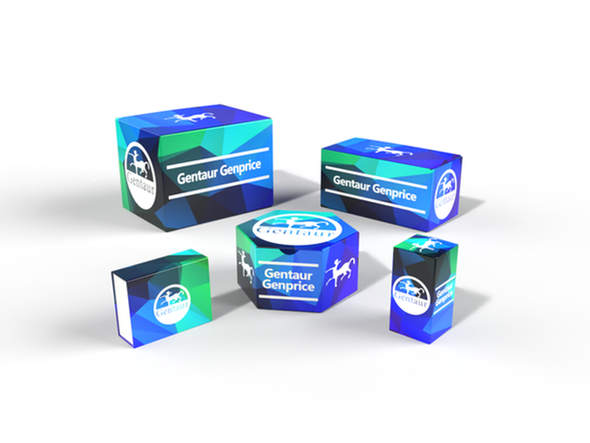Description
COASY Antibody | 14-298 | Gentaur UK, US & Europe Distribution
Host: Rabbit
Reactivity: Human, Mouse, Rat
Homology: N/A
Immunogen: Recombinant fusion protein containing a sequence corresponding to amino acids 345-564 of human COASY (NP_079509.5) .
Research Area: Cancer, Signal Transduction
Tested Application: WB, IHC
Application: WB: 1:500 - 1:2000
IHC: 1:100 - 1:200
Specificiy: N/A
Positive Control 1: LO2
Positive Control 2: 293T
Positive Control 3: A-549
Positive Control 4: SKOV3
Positive Control 5: Mouse heart
Positive Control 6: Mouse liver
Molecular Weight: Observed: 62kDa
Validation: N/A
Isoform: N/A
Purification: Affinity purification
Clonality: Polyclonal
Clone: N/A
Isotype: IgG
Conjugate: Unconjugated
Physical State: Liquid
Buffer: PBS with 0.02% sodium azide, 50% glycerol, pH7.3.
Concentration: N/A
Storage Condition: Store at -20˚C. Avoid freeze / thaw cycles.
Alternate Name: DPCK, NBIA6, NBP, PCH12, PPAT, UKR1, pOV-2, bifunctional coenzyme A synthase, CoA synthase, bifunctional phosphopantetheine adenylyl transferase/dephospho CoA kinase, nucleotide binding protein, phosphopantetheine adenylyltransferase / dephosphocoenzyme A kinase
User Note: Optimal dilutions for each application to be determined by the researcher.
BACKGROUND: Coenzyme A (CoA) functions as a carrier of acetyl and acyl groups in cells and thus plays an important role in numerous synthetic and degradative metabolic pathways in all organisms. In eukaryotes, CoA and its derivatives are also involved in membrane trafficking and signal transduction. This gene encodes the bifunctional protein coenzyme A synthase (CoAsy) which carries out the last two steps in the biosynthesis of CoA from pantothenic acid (vitamin B5) . The phosphopantetheine adenylyltransferase domain of this bifunctional protein catalyzes the conversion of 4'-phosphopantetheine into dephospho-coenzyme A (dpCoA) while its dephospho-CoA kinase domain completes the final step by phosphorylating dpCoA to form CoA. Mutations in this gene are associated with neurodegeneration with brain iron accumulation (NBIA) . Alternative splicing results in multiple isoforms.






